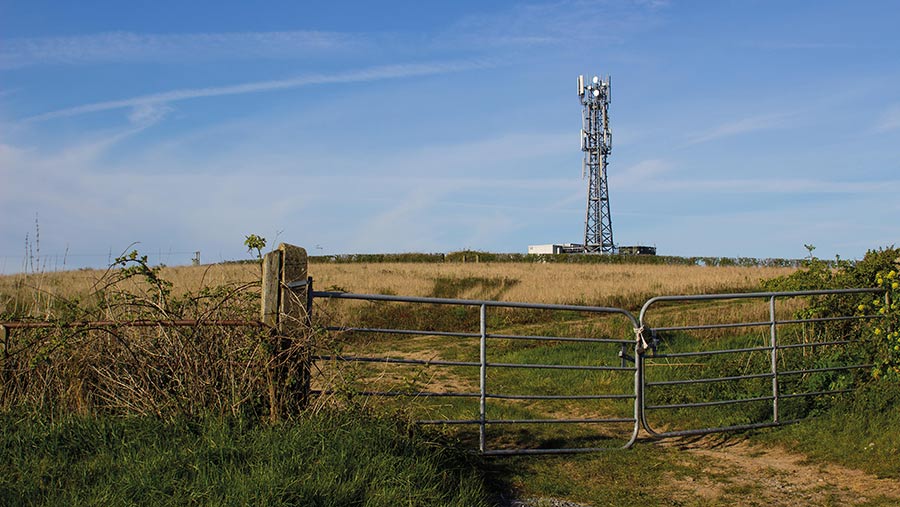Phone mast proposals will put further pressure on landowners
 © AnneGM/Adobe Stock
© AnneGM/Adobe Stock A new Bill is before Parliament which campaigners fear will accelerate downward pressure on mobile phone mast rents.
The Product Security and Telecommunications Infrastructure Bill had its second reading in the House of Commons on 26 January.
The government says the aim is to encourage faster and more collaborative negotiations for the installation and maintenance of telecoms equipment on private land.
See also: Telecoms court case consider effect of incentive payments
But critics say the changes outlined by the Bill will make it harder for site owners to appeal against arbitrary rent cuts demanded by operators.
The Protect and Connect campaign group said mobile phone giants were holding site owners to ransom.
“Telecom companies who have just imposed price rises of close to 10% now want to pay site owners as little as £50 a year to host mobile phone masts.”
The main changes the Bill would make include:
- New provisions to actively encourage alternative dispute resolution rather than legal proceedings where possible
- Introducing a faster procedure to allow telecoms operators to get temporary rights to access and install infrastructure on land when an occupier is not responsive
- Giving telecoms operators rights to automatically upgrade and share equipment that was installed before 2017
- Changes to the terms for renewing certain types of telecoms agreements that were in place before December 2017.
Jeremy Moody, secretary and adviser at the Central Association of Agricultural Valuers (CAAV), said there was a concern that the government was seeking to change the basis of renewal rents on telecoms leases protected by the Landlord and Tenant Act 1954.
There were also changes proposed that would give operators the ability to ask for a new agreement while one was already in place, Mr Moody said, “which basically means no landowner would ever know where they stand, and that accelerates the process of how rents might move”.
While there was talk of better complaints procedures and operators being encouraged to find alternative means of dispute resolution, this would only work if the provisions had teeth, he warned.
“Our basic observation is that the more power an acquirer has, the worse they can behave. If they know that there will be checks, that would be an enormous improvement.”
MPs challenging Bill
Mr Moody said it was heartening that several backbenchers who took part in the Commons debate had been critical of the valuation provisions, the powers given to operators, and the behaviours of parties.
They were also anxious about dispute resolution.
He said that the irony of the situation was that mobile phone operators were benefitting less and less from the powers being given to them, because they had sold their masts to stand-alone companies.
“The mast owners get the benefit of the cheap rent to the landowner and then charge the mobile companies full rent, so the value is being taken from the landowner and passed to the mast owner.
“It is not getting to the people who provide the mobile phone service.”
Next steps
The Bill has now moved to the committee stage, where it will face further scrutiny.
The first sitting of the Public Bill Committee is expected to be on Tuesday 15 March, and the committee is scheduled to report by Tuesday 29 March.
